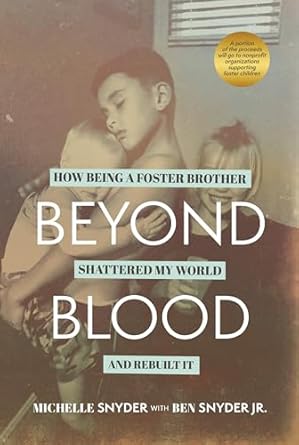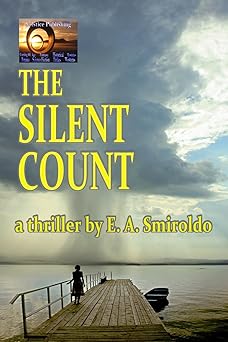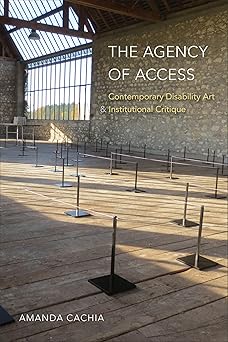The Disappeared by Rebecca J. Sanford
by Rebecca J. Sanford
The year I met the Grandmothers of the Plaza de Mayo, the organization was celebrating its twenty-fifth year and I was a twenty-five-year-old graduate student conducting field research for my thesis in Argentina. I worked with the Archivo Biográfico Familiar de Abuelas de Plaza de Mayo, an initiative founded in partnership with the social sciences faculty at the University of Buenos Aires. The mission of the Archivo was to collect and preserve testimony from family members of those who “disappeared” during Argentina’s military dictatorship—to capture personal, human details about their lives and legacies.
Between 1976 and 1983, an estimated thirty thousand people “disappeared” in Argentina, the majority of whom were men and women in their twenties and early thirties. Most were captured and subject to torture in clandestine detention centers before being killed. All the while, information as to their whereabouts was systemically withheld, leaving family members of the missing with no recourse or closure. This created a state of terror that few were brave enough to defy.
This so-called ‘dirty war’ was the result of a reorganization process intended to eradicate subversion. It was also part of Operation Condor, a U.S.-backed coordination of intelligence between a number of South American countries, including Argentina.
It was in this climate of fear that a group of brave mothers came together to resist the silence imposed by the dictatorship, demanding answers as to the whereabouts of their daughters and sons. They gathered in the Plaza de Mayo wearing white head scarves and held pictures of their missing children.
Among the missing were pregnant women and young couples with small children. In 1977, the mothers in search of missing grandchildren formed an organization – the Abuelas de Plaza de Mayo – and began documenting the approximately 500 cases of babies known to have been born in captivity or captured along with their parents. These babies were believed to have been put up for adoption or given to military sympathizers and raised with no knowledge of their biological identity.
Much of my time in Argentina was spent with founders of the Archivo about my own age—adult children of the “disappeared” in search of missing siblings born between 1976 and 1983. Their families welcomed me warmly into their homes and shared their stories. I had the privilege of participating in interviews with the grandmothers and mothers of the Plaza de Mayo as well as sociologists, activists, musicians, former prisoners, a Nobel Peace Prize recipient, and a federal judge who played a pivotal role in overturning the amnesty laws that protected members of the military from persecution for their war crimes. I toured excavation sites and former prisons, including the notorious Club Atletico and La Escuela Superior de Mecánica de la Armada (ESMA), where the “disappeared” were held captive.
After returning to New York City, where I was living at the time, I wrote a thesis rooted in this research and continued to follow the work of the Grandmothers, whose search evolved throughout each phase of their missing grandchildren’s lives. I remained tremendously interested in the experience of the reappropriated children of my generation whose identities were stolen during Argentina’s “dirty war.” As the daughter of a Vietnam veteran, I also wanted to better understand the military involvement of the United States in Operation Condor.
Creative writing has been an outlet for me for as long as I can remember and, over time, these explorations resulted in a lengthy first draft of my historical fiction novel, The Disappeared. When I became pregnant with my daughter, I put the manuscript on the proverbial shelf. About a decade later, after a milestone in my professional career, I began revising the story—reworking it through the eyes of a mother, which was a unique and satisfying creative process. All in, I spent about three years writing the book, but the story was close to twenty years in the making.
In The Disappeared, three generations of women contend with the trauma of the dictatorship: a young mother living with dangerous secrets, a daughter in search of her identity, and a grandmother who refuses to give up the fight for family and truth.
The real Abuelas de Plaza de Mayo have found and identified 137 of their approximately 500 missing grandchildren, but their search continues. Their tireless work has contributed to the establishment of a National Commission for the Right to Identity and a National Bank of Genetic Data in Argentina, providing a path for anyone with doubts about their biological identity.
Visit https://www.abuelas.org.ar/ to learn more and support the Grandmothers.
—
REBECCA J. SANFORD is the author of The Disappeared, recipient of the Women’s Fiction Writers Association Rising Star Award. She received her MA in international affairs from The New School in New York City. Originally from New York, Rebecca now lives in Florida with her family.
THE DISAPPEARED
 Inspired by the real mothers and grandmothers who spoke out against Argentina’s military dictatorship, The Disappeared is an award-winning debut about identity, family secrets, and those who endured decades of hardship to expose the truth.
Inspired by the real mothers and grandmothers who spoke out against Argentina’s military dictatorship, The Disappeared is an award-winning debut about identity, family secrets, and those who endured decades of hardship to expose the truth.
In 1976 Buenos Aires, Lorena Ledesma is a housewife with dangerous secrets living under Argentina’s rising military dictatorship. When she and her husband are torn from their home by the paramilitary in the middle of the night, their two-year-old son is left behind with Lorena’s mother, Esme. There’s never any record of the arrest. Desperate to locate Lorena, Esme joins an underground group of mothers who are investigating the disappearances of their own missing children. But when they make a devastating discovery—that several of their kidnapped daughters have given birth in prison—a new kind of pursuit begins: the search for their stolen grandchildren.
Nearly three decades later, thousands of miles away, American adoptee Rachel Sprague learns she has a biological brother from another country—somewhere she has never visited. But the truth goes far deeper than the results of a DNA test, and revealing her origins will expose painful family secrets that could put Rachel’s loved ones in jeopardy.
A heart-wrenching drama that spans thirty years, The Disappeared is inspired by the true stories of the mothers and grandmothers of the Plaza de Mayo, an extraordinary group of women who, for more than forty-five years, have been searching for children of the “disappeared”—those captured as dissidents during Argentina’s Dirty War.
BUY HERE
Category: On Writing























